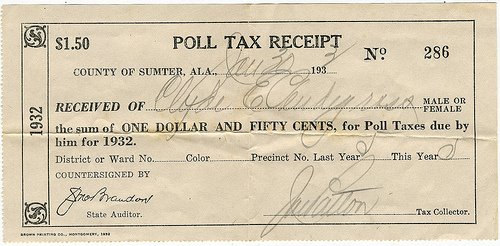Headlines Say ‘Reform,’ Not Voter Suppression
Support Journal-isms
Headlines Say ‘Reform,’ Not Voter Suppression
In his mid-day news conference Thursday, President Biden took aim at the efforts to disenfranchise Black and brown voters across the country.
“This makes Jim Crow look like Jim Eagle. I mean, this is gigantic what they’re trying to do, and it cannot be sustained,” he said.
“I’m going to do everything in my power, along with my friends in the House and the Senate, to keep that from — from becoming the law.” The national media recognized the scope of the proposed actions, with voter suppression bills introduced in 43 states.
Thursday night, Georgia’s governor signed a voter suppression bill into law. Under the headline, “Why the Georgia G.O.P.’s Voting Rollbacks Will Hit Black People Hard,“ Richard Fausset, Nick Corasaniti and Mark Leibovich wrote for The New York Times, “Taken together, the new barriers will have an outsize impact on Black voters, who make up roughly one-third of the state’s population and vote overwhelmingly Democratic.”
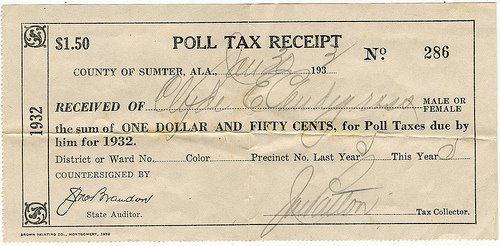
On CNN, anchor Don Lemon showed footage of Georgia State Rep. Park Cannon’s arrest and asked viewers, “Are you outraged? I know you have some sort of emotion around it. I know you’re feeling something around it. And you should be passionate about it. That’s the only way you change things. Are you outraged?”
Columnist Will Bunch of the Philadelphia Inquirer noted that the bill-signing took place under a painting of a slave plantation.
But in Georgia, the local media seemed timid in its reporting of the stakes and victimized by what has become known as “both-sides-ism,” or false equivalence.
The headline in the print edition of the Atlanta Journal-Constitution was “SWEEPING CHANGES TO VOTING APPROVED.” The Savannah Morning News had the bland headline online, “Georgia lawmakers pass GOP election reform bill,” characterizing the legislation as “reform,” echoing Republican talking points.
There were no fresh editorials on the web pages of the Journal-Constitution, the Morning News or the Macon Telegraph that would signal the historic nature of what took place.
Video by WXIA photojournalist Pete Smith showed Rep. Park Cannon standing outside of the governor’s ceremonial office, where he was delivering those remarks, knocking on the door.
 “We have to keep in mind we don’t have a lot of progressive media organizations in the state of Georgia,” Fenika Miller (pictured), Georgia state coordinator for the group Black Voters Matter, told Journal-isms Friday by telephone.
“We have to keep in mind we don’t have a lot of progressive media organizations in the state of Georgia,” Fenika Miller (pictured), Georgia state coordinator for the group Black Voters Matter, told Journal-isms Friday by telephone.
“That’s a hard nut to crack. . . . We have a Republican Legislature” that is “framing the narrative. It’s harmful and confusing,” she said.
 Asked his assessment of the local coverage, Hank Klibanoff (pictured), a former managing editor of the AJC, co-author of “The Race Beat: The Press, the Civil Rights Struggle, and the Awakening of a Nation,” and holder of an endowed chair in journalism at Emory University, said Friday that the issue strikes a nerve.
Asked his assessment of the local coverage, Hank Klibanoff (pictured), a former managing editor of the AJC, co-author of “The Race Beat: The Press, the Civil Rights Struggle, and the Awakening of a Nation,” and holder of an endowed chair in journalism at Emory University, said Friday that the issue strikes a nerve.
“I don’t know if you know that I had a bit of a public (Facebook) disagreement with the AJC (my first since leaving in 2008) over its presentation of political coverage during the last election, including the Senate runoffs,” Klibanoff replied.
“I even used the word pandering to insinuate that they were pandering to the right. I’ve made presentations to my classes for years showing how the AJC is bending over so far backward to be ‘fair’ that they’ve put form over function. (One of their editors has come to my class and is very proud of that ‘balance’).
“They balance everything: the size of every candidate photo is the same, the cutlines are always the same number of lines under the photos, the read outs (enlarged boldface parts of the story) are the same number of words for the competing candidates (I have examples I can share).”
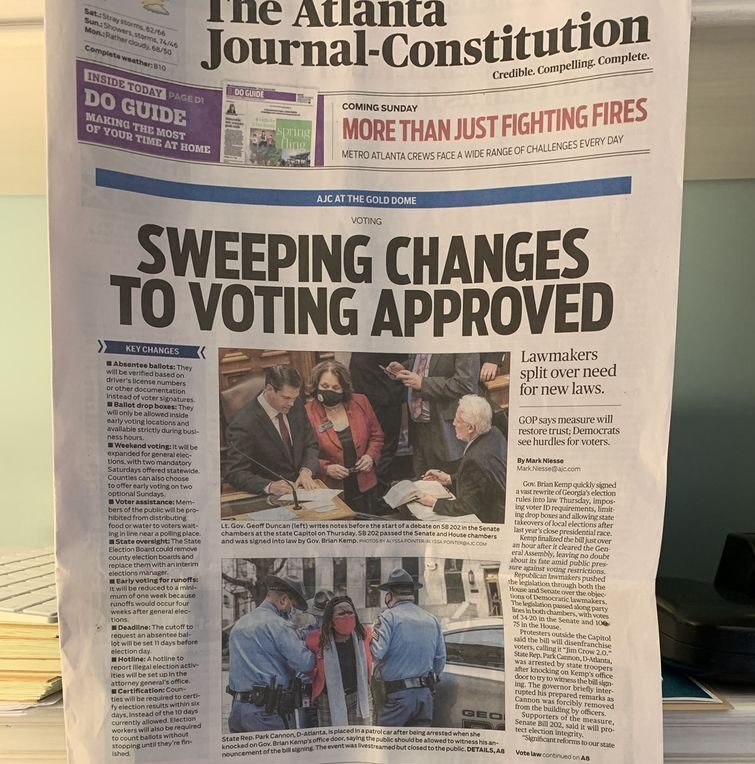 “The headline today stripped across the top says, ‘SWEEPING CHANGES TO VOTING APPROVED.’ Not sweeping ‘limits’ or ‘curbs.’ Changes. (The story is not a problem, but the hed and subheds are neutered, as usual).
“The headline today stripped across the top says, ‘SWEEPING CHANGES TO VOTING APPROVED.’ Not sweeping ‘limits’ or ‘curbs.’ Changes. (The story is not a problem, but the hed and subheds are neutered, as usual).
“I’m not opposed to balance but I’m in the Ralph McGill/Edward R. Murrow School of Objectivity, which decries the ‘cult of objectivity,’ as McGill called it in 1959 and which says efforts to force balance on unbalanced news can often steer readers away from the meaning of the story, not toward it. . . .”
Not everyone in the Georgia media world thinks things are amiss. Amir Vera, an Atlanta-based CNN writer who is president of the Atlanta Association of Black Journalists, messaged Journal-isms, “I haven’t seen anything that I would be unsatisfied with.”
 Rana Cash (pictured), editor of the Savannah Morning News, messaged, “I think it’s fair to say that there is a fair degree of angst over the voting rights changes. We do have a multifaceted package of stories being published within the next few days that address the concerns you’ve stated here. We’re definitely not sleeping on it.
Rana Cash (pictured), editor of the Savannah Morning News, messaged, “I think it’s fair to say that there is a fair degree of angst over the voting rights changes. We do have a multifaceted package of stories being published within the next few days that address the concerns you’ve stated here. We’re definitely not sleeping on it.
“In the interim, we’ve used the syndicated Capitol Beat News Service and AP content as we work on more substantial pieces. We’ve also run several opinion pieces on the topic. Your desire for more coverage is warranted.” Cash said she would look at the homepage “reform” headline and said she always welcomed constructive criticism.
 Andre Jackson (pictured), editorial editor at the AJC, said he was busy writing an editorial on the topic for Sunday’s editions and attached four editorials on the subject from January, February and March. The last, on March 13, was headlined, “The risk of ill-considered voting law changes.“
Andre Jackson (pictured), editorial editor at the AJC, said he was busy writing an editorial on the topic for Sunday’s editions and attached four editorials on the subject from January, February and March. The last, on March 13, was headlined, “The risk of ill-considered voting law changes.“
[The resulting Sunday editorial was strongly worded, beginning, “In a cynical series of actions Thursday, Georgia lawmakers managed to march firmly onto the wrong side of history.”]
Meanwhile, the story is far from over. The federal legislation remains, as do the proposed measures in other states; the African Methodist Episcopal church has called for a boycott, among the efforts to put pressure on Atlanta-based companies and the chamber of commerce there, and Black Voters Matter has joined others in a lawsuit [PDF] to stop the new law from taking effect.
The wish for the news media from Black Voters Matter’s Miller: “Just lift up the work our partners are doing across the state.”
- Charles M. Blow, New York Times: Voter Suppression Is Grand Larceny (Feb. 28)
- Greg Bluestein, Atlanta Journal-Constitution: Voting rights advocates plan economic boycott to pressure Georgia firms
- Nicole Hemmer, CNN: What Jim Crow looks like in 2021
- Janine Jackson with Ari Berman, Fairness & Accuracy in Reporting: ‘It’s the Biggest Assault on Voting Rights Since the End of Reconstruction’ (March 16)
- Eric Lutz, Vanity Fair: “Jim Crow In a Suit and Tie”: Georgia Passes Massive Voter Suppression Bill
- Donna Owens, Essence: New Georgia Voter Suppression Law Being Compared to ‘Jim Crow’ Era
- Leonard Pitts Jr., Miami Herald: Don’t sit there like idiots, Democrats — Republicans don’t want your voters to vote (March 2)
- Doug Richards, WXIA-TV: Gov. Kemp signs controversial GOP elections bill into law
- Jane C. Timm, NBC News: ‘Outrageous’: Biden condemns new Georgia law as a ‘blatant attack’ on voting rights
The Root’s Belton Named HuffPost Editor
March 24, 2021
New Owners Say Diversity Will Be Priority

New Owners Say Diversity Will Be Priority
Danielle Belton, editor-in-chief of the resolutely Black website The Root, has been chosen to lead HuffPost, whose owners Wednesday described the site as “a Pulitzer Prize-winning news organization that publishes original online reporting on politics, lifestyle, entertainment, and more.”
BuzzFeed Founder and CEO Jonah Peretti, said in a statement that his company “began an expansive and robust search for an Editor-in-Chief to lead the newsroom when it announced it was acquiring HuffPost in November. A diverse group of candidates [was] tapped to write memos on their visions for the future of HuffPost, which were reviewed by a wide range of leaders from across the company.”
In an internal memo Wednesday, Peretti, 47, said, “I expressed to Danielle a commitment to immediately increasing the representation of Black and Latinx employees in the HuffPost newsroom during our journey to profitability, and under her leadership we will pursue this from Day 1 to ensure we are representing and reaching the most diverse audience.”
Belton, 43, agreed that diversity would be a priority. “She said leadership had told her that it was committed to diversity and that she would be able to hire more workers,” Katie Robertson reported for the New York Times.

Kerry Flynn added for CNN, “HuffPost’s newsroom is not only reeling from recent layoffs but has been dealing with its own longstanding diversity issues. A push for newsroom diversity was one of the reasons HuffPost unionized in 2015. Last year, HuffPost staffers told CNN Business that their previous owner, Verizon Media Group, did not do enough to improve diversity in the newsroom and that they hoped Peretti would do more.”
The Root has undergone a series of ownership changes and shifts in tone since its founding in January 2008 by Harvard scholar Henry Louis Gates Jr. and then-Washington Post Publisher Donald Graham.
In the site’s latest iteration, “politeness” was out; four-letter words and attitude were in.
On its 10th anniversary, in 2018, Belton told CNN’s Frencesa Giuliani-Hoffman, “Our voice has changed throughout the years. The biggest shift happened this January, when we moved to the Kinja platform and became part of Gizmodo Media Group under Univision. I told my staff that we were going to take a big risk and really fully embrace our… well, there’s no better way to put it: We were going to fully embrace being black.”

Belton also said then, “Because [the advent of Donald Trump] took away so much of the civility and politeness in our conversation, especially around race, it didn’t seem to make sense for us to continue to be on the sidelines. To just talk about things from this really objective, far off place.
“There’s no reason to mince words. It’s better just to talk about Trump’s opinions and viewpoints and statements as they are, as opposed to pretending like the era of civility around race still [exists] in this country, because it just doesn’t. That politeness is gone and 2016 killed it.”
That approach worked. When Gizmodo bought the site in 2017, it boasted, “Danielle has led The Root newsroom, as its Managing Editor, since May 2016. This past year, under her leadership, The Root has seen tremendous audience growth and engagement, reaching a record 12.1 million US unique readers on site in August, up from about 5 million a year ago.”
Belton was promoted to editor-in-chief. She became the youngest person to lead the site.
A Gizmodo news release then recapped, “Before joining The Root as an associate editor in 2015, Danielle worked in a variety of positions — from senior digital media strategist for the civil rights non-profit, Advancement Project, to head writer for a late-night talk show on BET, ‘Don’t Sleep hosted by T. J. Holmes,’ to a beat reporter for five years in Bakersfield, Calif.
“In 2007, Danielle started the blog that would change her professional life, the award-winning political and pop culture blog The Black Snob, which [led] to almost every writing assignment and appearance she’s had since, including the New York Times, Time, CNN, and NPR. An advocate for mental health, Danielle has been featured in Essence and BP magazines, as well as on MSNBC, talking about her battle with bipolar disorder, and she recently started a column on The Root, about socializing while suffering from social anxiety: Antisocial.”
Robertson wrote for The Times, “Ms. Belton now faces the task of uniting a reeling newsroom and charting a new course for the publication under BuzzFeed. She will report to Mark Schoofs, the editor in chief of BuzzFeed, though the two publications will have separate editorial teams and websites.
“ ‘I’m really excited about this healthy competition that’s going to exist between HuffPost and BuzzFeed,’ Ms. Belton said. ‘I’m excited about the moment that HuffPost beats BuzzFeed on a scoop.’ ”
A spokesperson for G/O Media!, which owns The Root, did not respond to a question about its next steps.
Confirmed: Many Cops Can’t Manage Protests
N.Y. Times Reviews Post-Protest Reports
Photographer Out After ‘F—— Hot Nurse’ Caption
Sheriff Has Cops Called on Black News Carrier
Environmental Journalists of Color Organize
Williams, Faulkner Tales Offer Lessons in Verifying
. . . ‘Forgive me. Forgive Me,’ in Talk With Trump
Axios, Telemundo Launch ‘Axios Latino’ in English
Poynter Newsletter to Feature Journalists of Color
Even Chung Couldn’t Get Asian Vote Covered
Who Gets to Decide Who Should Be Forgiven?
Short Takes
Homepage photo by Chris Sweda/Chicago Tribune
Support Journal-isms
N.Y. Times Reviews Reports Filed After the Events
“Now, months after the demonstrations that followed the killing of George Floyd by the Minneapolis police in May, the full scope of the country’s policing response is becoming clearer,” Kim Barker, Mike Baker and Ali Watkins reported Saturday for The New York Times.
“More than a dozen after-action evaluations have been completed, looking at how police departments responded to the demonstrations — some of them chaotic and violent, most peaceful — that broke out in hundreds of cities between late May and the end of August. . . .”
The story led the Sunday print edition.
“The New York Times reviewed reports by outside investigators, watchdogs and consultants analyzing the police response to protests in nine major cities, including four of the nation’s largest. . . .
“Almost uniformly, the reports said departments need more training in how to handle large protests. They also offered a range of recommendations to improve outcomes in the future: Departments need to better work with community organizers, including enlisting activists to participate in trainings or consulting with civil rights attorneys on protest-management policies. Leaders need to develop more restrictive guidelines and better supervision of crowd control munitions, such as tear gas. Officers need more training to manage their emotions and aggressions as part of de-escalation strategies. . . .”
The Times also wrote, “Reviewers more often found that officers behaved aggressively, wearing riot gear and spraying tear gas or ‘less-lethal’ projectiles in indiscriminate ways, appearing to target peaceful demonstrators and displaying little effort to de-escalate tensions. In places like Indianapolis and Philadelphia, reviewers found, the actions of the officers seemed to make things worse.
“Departments also were criticized for not planning for protests, despite evidence that they would be large. In Los Angeles, ‘the lack of adequate planning and preparation caused the Department to be reactive, rather than proactive,’ inhibiting the officers’ ability to control the violence committed by small groups of people.
“As with the protests in Washington, D.C., on Jan. 6 that culminated in the Capitol riot, police also did not understand how angry people were, in some cases because they lacked resources devoted to intelligence and outreach that would have put them in better touch with their communities. . . .”
Also, “several reports faulted departments for failing to train officers to de-escalate conflict, control crowds and arrest large numbers of people. . . .”
- Lori Rozsa, Brittany Shammas and Tim Craig, Washington Post: Curfew causes Black Americans to wonder if they can still have fun in Miami Beach
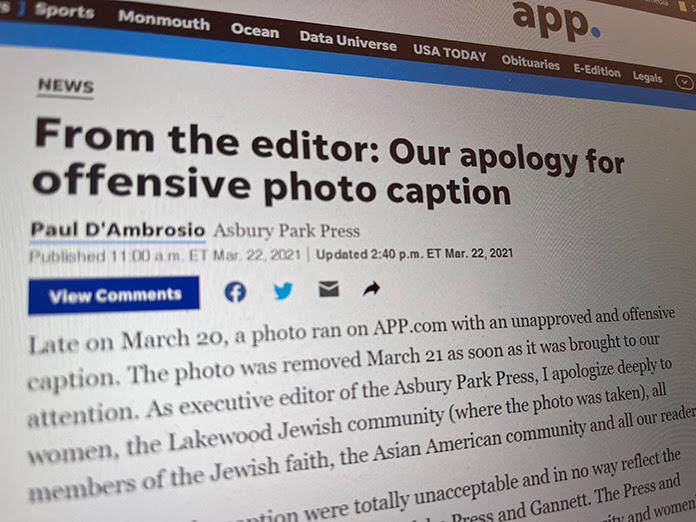
Photographer Out After ‘F—— Hot Nurse’ Caption
“The Asbury Park Press appears to have fired Gustavo Martínez Contreras, the longtime photographer who used a misogynistic and offensive caption in a photo that appeared in their online edition on Sunday,” David Wildstein reported Tuesday for the New Jersey Globe.
“ ‘The reporter in question is no longer with the company,’ executive editor Paul D’Ambrosio said this morning.
“While the Gannett-owned newspaper declined to name Martínez Contreras in an editor’s note that appeared online this morning, [it] explained how the caption referring to an Orthodox Jewish nurse preparing to administer a COVID-19 vaccination [as] ‘a fucking hot nurse, a total JAP [Jewish American Princess]’ found its way onto [its] website.
“D’Ambrosio said that the reporter was able to upload images directly into their content management system and that as a safeguard, another set of eyes is supposed [to] read the story and captions before it is published. Instead, Martinez Contreras self-published his photos and captions.
“ ‘I thought someone had hacked our content management system,’ D’Ambrosio said. ‘In reality, it was a reporter who admitted that he did a ‘stupid, stupid thing.’
“Going forward, D’Ambrosio said, ‘no photo and caption will be published without another staffer looking it over, regardless of the time of day.’ . . .
“Martínez Contreras is a 16-year multimedia journalist, according to his biography on the Asbury Park Press’ website. He’s worked for the newspaper for less than two years. . . .”
- Halima Athumani, Voice of America: Ugandan President Sues Newspaper Over Vaccination Report
- Masood Farivar, Voice of America: [In U.S.] Anti-Asian Hate Crime Crosses Racial and Ethnic Lines
- Sheera Frenkel, New York Times: Black and Hispanic Communities Grapple With Vaccine Misinformation (March 10)
- Derrick Z. Jackson, Union of Concerned Scientists: 500,000 US COVID-19 Deaths and Counting: A Shameful Public Health Failure (Feb. 17)
- Júlio Lubianco, LatinAm Journalism Review: COVID-19 kills more than one journalist a day in Latin America; region is the world’s most fatal for press professionals
- Chris Lundy, Jersey Shore Online: Public Outraged By Vulgar Slur Printed By Online Newspaper
- Carmen Sesin, NBC News: Latino churches push Covid vaccine enrollment, but some spread misinformation (March 9)
- Ray Suarez, Palabra/National Association of Hispanic Journalists: In the United States We Now Have One Pandemic for All Americans, and a Custom-Made Disaster for Brown and Black People
- Dalton Walker, Minnesota Native News: A Year After the Start of the COVID-19 Pandemic, White Earth Hosts First Indoor Powwow (March 12)

Sheriff Has Police Called on Black News Carrier
In Tacoma, Wash., “Pierce County Sheriff Ed Troyer sparked a massive police response in late January after confronting a Black man driving near his home, telling a 911 dispatcher the man ‘threatened to kill me’ — an allegation he retracted upon questioning by Tacoma police,” Jim Brunner and Lewis Kamb reported Thursday, updated Monday, for The Seattle Times.
“The man was a newspaper carrier on his regular route.
“The 24-year-old carrier, Sedrick Altheimer, said the early morning encounter on Jan. 27 left him afraid for his life and angry at Troyer — who was driving an unmarked, personal SUV and didn’t identify himself as law enforcement.
“Troyer, who is white, said he did not racially profile Altheimer. He said he began following the carrier because he saw a driver he believed was behaving suspiciously in his neighborhood in Tacoma’s West End. ‘There is nothing to do with him being Black,’ Troyer told The Seattle Times.
“The newly elected sheriff expressed surprise Tacoma police had written an incident report about the encounter, noting Altheimer was not arrested. ‘I thought they solved it that night,’ he said.
“Troyer’s call to a 911 dispatcher, which came in shortly after 2 a.m. on a Wednesday, spurred an urgent countywide alert that sent more than 40 officers from multiple agencies rushing toward the scene, public records show. Most were called off after Tacoma police arrived. . . .”
- Matt Driscoll, News Tribune, Tacoma, Wash.: By going ‘Karen’ on a newspaper carrier, Ed Troyer has fractured public trust (again)
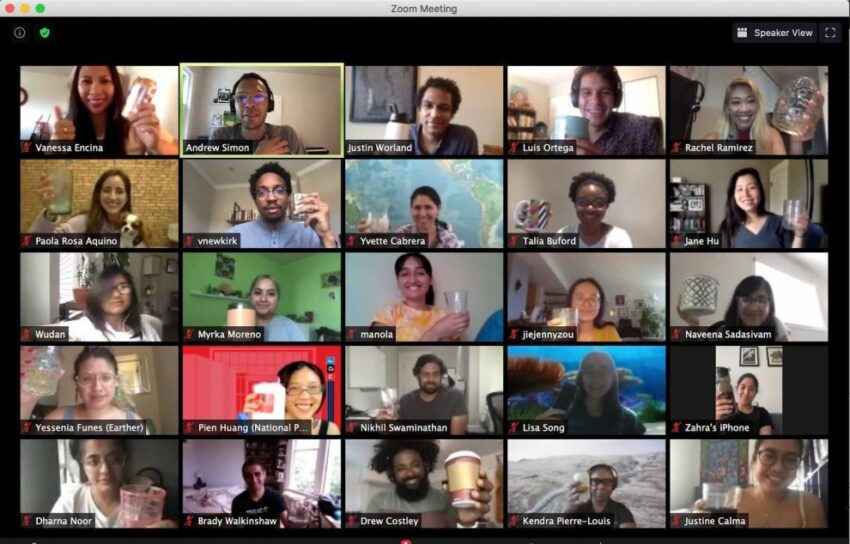
Environmental Journalists of Color Organize
“Climate change . . . doesn’t impact everyone equally, which is why a diverse, culturally competent press is vital to covering and enacting climate solutions,” Hanaa’ Tameez reported Thursday for Nieman Lab.
“Enter: The Uproot Project, a collective network of and for environmental journalists of color that’s launching this month. The Uproot Project is dedicated to advancing the careers of journalists who have been historically underrepresented in environmental and science journalism and can offer the industry fresh perspectives.
“The Uproot Project started out as an idea by Andrew Simon, the director of leadership programming for Grist, a nonprofit news outlet that covers climate. Steering committee member Yessenia Funes, the climate editor for Atmos Magazine, said that Simon convened a group of environmental journalists of color in Seattle in 2019 to get a sense of whether or not there was a larger need and demand for a professional organization to support and uplift journalists of marginalized backgrounds covering these beats.
“The question was answered with a resounding yes.
“It’s worth mentioning that there are organizations like the Society for Environmental Journalists, the National Association of Science Writers, and Climate Matters. The Uproot Project is unique in its core mission of supporting journalists from underrepresented communities.
“The steering committee for The Uproot Project is made up of Funes, Naveena Sadasivam, Justin Worland, Yvette Cabrera, Paola Rosa-Aquino, and Manola Secaira. . . .”
- Yanick Rice Lamb, Belt magazine: The Rubber Industry’s Toxic Legacy in Akron (March 5)
- Lucy Sherriff, Future Human/medium.com: Hawaii’s Forgotten Native-Language Newspapers Are a Treasure Trove of Climate Data

Williams, Faulkner Tales Offer Lessons in Verifying
Two maxims in the journalism world might be applicable here: “If your mother says she loves you, check it out,” and “Don’t take Wikipedia as gospel.”
Fox News commentator Juan Williams last week accused PBS of extending an invitation to appear on one of its shows to talk about social justice, but withdrawing the invitation when the host learned Williams was Panamanian.
 However, the host of the show, Dennis Wholey (pictured), told Journal-isms by telephone that the program does not originate with PBS, was not to talk about social justice, and that “I think the world of Juan.” He had not been quoted in the accounts of the Williams invitation.
However, the host of the show, Dennis Wholey (pictured), told Journal-isms by telephone that the program does not originate with PBS, was not to talk about social justice, and that “I think the world of Juan.” He had not been quoted in the accounts of the Williams invitation.
Wholey did acknowledge, however, that “the error might have been reading a Wikipedia page” that “seemed to identify him more as Panamanian.” Wholey said he was trying “to focus on an African American experience” from one “who identified as African American.”
Williams and Wholey, who hosts the independently produced “This is America & The World,” communicated only between intermediaries. The Wikipedia entry does introduce Williams as a “Panamanian-American journalist and analyst for Fox News Channel.”
Last Tuesday, Williams accepted an award for “Talent Reflection of Inclusion in Television.” The occasion was The CultureX Awards, which “recognize individuals, organizations, and programs for their outstanding commitment to inspiring cultural inclusion within the television industry, either on the screen or behind the scenes.”
Williams said, in accepting the award, “Let me tell you a quick story about media and identity.
“Recently, Fox got a request for me to do an interview for a PBS show. The host of that show wanted to talk about the last year of protests for racial justice that began with the death of George Floyd, who, as you’ll recall, died after a policeman kneeled on his neck for nearly nine minutes.
“But before I responded to the invitation, it was withdrawn. The host explained that his research showed, and here I’m going to quote him, Juan’s background is one hundred percent Panamanian, end quote. The white host said he is a fan of my work on television, but my background didn’t fit with a program about black protest. How insulting. Yeah, I was born in Panama. It’s also true that I have lived in the USA since age four. And it’s also true that my dad is a black man. He was born in Jamaica. My mom is a woman born in Panama to a father from India and a mother of African descent who was born in the Caribbean. . . .”
Wholey said of Williams, “I will drop him a personal note” to clarify. Williams has previously been on his show, Wholey said.
- Thomas Umstead, nexttv.com: Juan Williams Brings an Alternative Voice to Fox News (March 14)
. . . ‘Forgive me. Forgive Me,’ in Talk With Trump
 “Fox News host Harris Faulkner (pictured) had an awkward exchange with former President Donald Trump on Monday when she wrongly informed him during a live telephone interview that Alejandro Mayorkas, President Biden’s secretary of homeland security, had just resigned,” Dylan Stableford reported Monday for Yahoo News.
“Fox News host Harris Faulkner (pictured) had an awkward exchange with former President Donald Trump on Monday when she wrongly informed him during a live telephone interview that Alejandro Mayorkas, President Biden’s secretary of homeland security, had just resigned,” Dylan Stableford reported Monday for Yahoo News.
“ ‘This has just happened now, and I want to double-check this with our producers,’ Faulkner said, putting a finger to her earpiece. ‘The DHS secretary, Alejandro Mayorkas, has resigned, Mr. President. Your thoughts.’
“ ‘Well, I’m not surprised. Good,’ Trump replied. ‘It’s a big victory for our country.’
“Trump, a fierce critic of Biden’s immigration policies, had called for the homeland security secretary’s removal.
“ ‘Hold on,’ Faulkner interjected. ‘Let me stop. Let me stop. Let me listen to my team one more time.’
“She then told the president she had been misinformed.
“ ‘Forgive me. Forgive me. That has not happened,’ Faulkner said. ‘And I apologize.’ . . .”
At the Poynter Institute, Tom Jones commented in his media column, “Mistakes happen, but this was pretty sloppy by Faulkner (scroll down). That kind of news needs 100% confirmation before announcing it on the air. This was embarrassing for her and the network.
“In fact, the whole interview was a mess. . . .”
- David Bauder, Associated Press: Fox’s Harris Faulkner is used to people making presumptions (July 16, 2020)
- Mike Freeman, USA Today: NAACP to NFL: Don’t ‘fund Fox News’ hatred, bigotry, lies and racism’

Axios, Telemundo Launch ‘Axios Latino’ in English
Axios and Noticias Telemundo Thursday announced the launch of “Axios Latino,” “a weekly English-language newsletter examining the key issues impacting the Latino community.
“Produced by Axios and Noticias Telemundo, the newsletter debuts March 25 and will provide readers with the most consequential news and developments in one concise newsletter, (scroll down)” an announcement said.
“The newsletter marks the first time Axios partners with a news organization to produce one of its signature and highly popular newsletters. The newsletter will maximize Axios’ proven Smart Brevity® style and newsletter format to make readers smarter, faster on the issues that matter most in the Latino community.
“Axios Latino also represents the latest English-language editorial offering from Noticias Telemundo, adding to its comprehensive news coverage of the Hispanic community. . . . “
The effort is led by reporters Marina E. Franco of Noticias Telemundo and Russell Contreras of Axios.
Poynter Newsletter to Feature Journalists of Color
 “As we approach the first anniversary of the racial reckoning in America’s newsrooms, the unique challenges of being a journalist of color continue,” Doris Truong (pictured) wrote Friday for the Poynter Institute. “And who understands what we’re going through better than someone who has been through it themselves?
“As we approach the first anniversary of the racial reckoning in America’s newsrooms, the unique challenges of being a journalist of color continue,” Doris Truong (pictured) wrote Friday for the Poynter Institute. “And who understands what we’re going through better than someone who has been through it themselves?
“That’s why we’re excited to launch The Collective, a newsletter that will come out on the last Wednesday of the month starting in April. We’re looking for fresh voices to elevate. You can be a student, a retiree and anyone in between. Let us know what you’re interested in sharing and your preferred medium (text, photos, illustrations, video or audio). Your creativity is encouraged.
“Thanks to the support of the TEGNA Foundation, we are able to pay a freelance fee to all contributors, including our Council of Truth-Tellers. . . .”

Even Chung Couldn’t Get Asian Vote Covered
Connie Chung, pioneer Asian American broadcast journalist, said that even she couldn’t get her former colleagues to pay attention to the Asian American vote last year, “because we’re that minority that is invisible. We are insignificant. And it’s so apparent to all of us who are Asian.“
After the November election, the group Asian and Pacific Islander American Vote (APIAVote) declared, “2020 has solidified AAPI voters as the margin of victory, and it is time for everyone to take notice of the unique needs and challenges of our communities.”
Chung, 74, described by one writer as “one of the most well-known journalists in the United States, if not the world” in the 1990s, has worked at the national networks as reporter or anchor.
On Sunday she was interviewed on CNN’s “Reliable Sources” in light of the fatal violence against people of Asian descent.
Chung told host Brian Stelter, “anti- Asian hate started the moment it came out of President Trump’s mouth. The moment he called COVID-19, the China virus or Kung flu. We saw incidents of Asian hate all across the country now reaching 3800 incidents. I was so incensed by what he had done, that I decided to take sides in this presidential election in 2020. I created a video aimed at Asians and Asian women urging them to vote because I found out that Asians could be the key in key battleground states if they could tip the ballots for Biden.
“I tried to get my old friends and colleagues to cover this story of how important the Asian vote was to this election. No one would do it. No one would pick — I mean, they’d get back to me, but they’d say, yes, this important story, but I never saw it on the air.
“Now, with this horrific incident, they still didn’t cover it until it happened. Earlier, a few weeks earlier, the New York Times had a story about Asian hate prior to this incident — not incident, these murders, these horrendous murders in Georgia. And it had it on the front page. . . . broadcast organizations frequently use The New York Times as their daily assignment sheet.
“Not until it appeared in The New York Times did other news organizations pick up on it and start reporting about Asian hate. Then this occurred. The media has been miserably late, miserably late. And it’s because we’re that minority that is invisible. We are insignificant. And it’s so apparent to all of us who are Asian, I happen to be Chinese. . . .”
Are you a student interested in journalism and want to be a part of @aaja? I’ll help with membership. HMU! #AAPIs #StopAAPIHate #StopAsianHateCrimes https://t.co/dFYt4ikdVS
— Gia Vang (@Gia_Vang) March 21, 2021
Separately, anchor Gia Vang of KARE-TV in Minneapolis, described as “livid and worried” after her father, Tsong Tong Vang, was threatened at a bus stop while dropping [off] his 5-year-old grandson, has been helping young Asian American journalists by offering to cover the cost of their memberships in the Asian American Journalists Association, according to the subscription-only site NewsBlues.
- Eric Kleefeld, Media Matters for America: NBC and Fox Sunday shows featured no Asian American voices to discuss attacks on Asian Americans
- Jenni Lee, KVUE-TV, Austin, Texas: KVUE’s Jenni Lee opens up about anti-Asian American violence
- Jessica Roy, Los Angeles Times: How to be an ally: What you can do as a bystander to race-based harassment or violence
- Will Sutton, NOLA.com: Be an upstander for Black lives, against Asian hate, for equality
- Kristine Villanueva, Nieman Reports: 5 Things I Learned as an AAPI Engagement Editor Covering Anti-Asian Hate
- Elizabeth Weise, USA Today: Anti-Asian hashtags soared after Donald Trump first tied COVID-19 to China on Twitter, study shows

Who Gets to Decide Who Should Be Forgiven?
The ouster of Alexi McCammond as editor of Teen Vogue last week over old racist tweets has led to public and private commentary over whether she should be forgiven, though little has been heard from the targets of the tweets, Asian Americans and LGBT people.
On the CNN “Reliable Sources” media show Sunday, two white guys, host Brian Stelter and opinion writer David French, senior editor of The Dispatch, argued, “Whatever happened to second chances?”
As reported in this space, some on Twitter contended when McCammond resigned that the offending tweets should be viewed from the perspective of those on the receiving end. “You’re sad for Alexi,” wrote one, “but would you be as sad for all the Asian [and] LGBT employees that had [to] tolerate a boss that felt ok publicly making derogatory comments about them? Is 1 Alexi worth 1/20th of an Asian or LGBT employee?”
Said another, “imo it’s still up to members of the Asian community to do the forgiving since they were the ones singled out by the tweets.” (The tweets are described in the last paragraphs of this lead item.)
Meanwhile, for Peter Osnos, a former national editor at The Washington Post, the McCammond episode was grist for a 40-years-later reappraisal of Janet Cooke, a Black journalist at the Post who received journalism’s ultimate accolade. It was a Pulitzer Prize awarded in 1981 for “Jimmy’s World,” the story of a Black 8-year-old heroin addict that had D.C. police scouring the city in an effort to find him.
It turned out that Cooke made up the front-page story and the Post returned the Pultizer. Cooke left journalism.
Osnos asks, was “Janet Cooke rightly punished for life? She was a fine writer with a vivid imagination. She was young, immature and not properly supervised by her supposed mentors. Janet Cooke’s literary falsehoods were inexcusable, and a one-way ticket to misery. At what point is redemption acceptable when absolution is not possible?”
What happened to Cooke was in part due to systemic issues in journalism and society that should also be examined. Still, shouldn’t we ask the “at what point” question of the Black journalists who were smeared because of her lies?
Separately, Elizabeth Spiers wrote a provocative piece for substack Saturday on the McCammond episode. “I think it’s not just the tweets, and it’s not entirely McCammond’s fault that this is happening, and a lot of this mess has to do with the way Conde Nast operates and who its leadership is,” Spiers wrote.
- Andrew Court for DailyMail.com: Ex-Teen Vogue editor Alexi McCammond, 27, is seen for the first time since resigning over racist tweets as she walks with boyfriend T.J. Ducklo — who quit White House after his own scandal. Now they both need a new job
- Gene Meyer, eugenelmeyer.com: Recalling “Jimmy’s World” at the Washington Post (March 25)
Short Takes
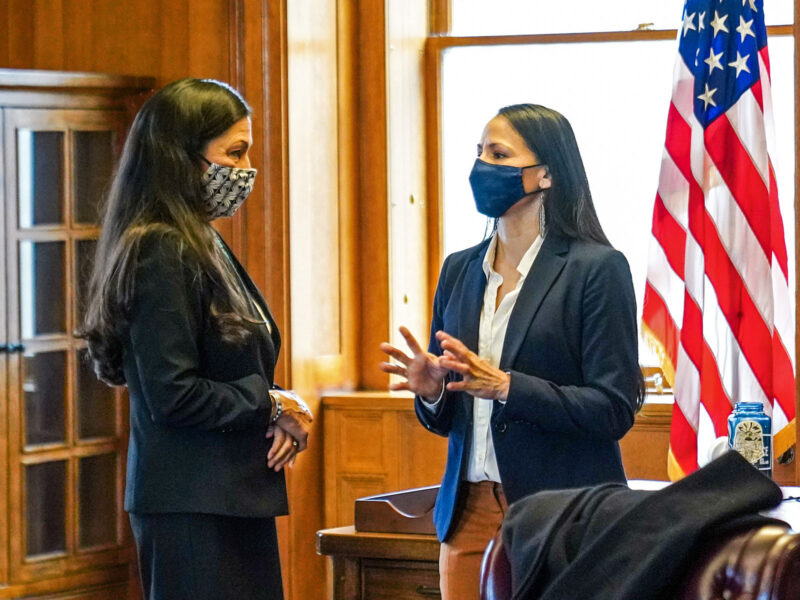
- On her first day in office last Wednesday, Secretary Deb Haaland, the first Native person to lead the Department of the Interior and the first Native person to serve in a presidential cabinet, held her first engagement with the news media, Acee Agoyo reported for indianz.com. “In doing so, she chose to speak first with Native reporters, something that hasn’t occurred in recent history with any high-ranking government official of any administration.” Her story includes a rush transcript of Haaland’s opening remarks with the Native media. High Country Times
- The Philadelphia Association of Black Journalists, a frequent critic of the Philadelphia Inquirer, has announced “a new partnership to help drive diversity, equity, and inclusion within The Philadelphia Inquirer and beyond,” PABJ President Ernest Owens declared March 15. “Commitments made include creating a new apprenticeship program for early-career Black and brown journalists at The Inquirer, a partnership around a new Community Advisory Council for The Inquirer, and continued dialogue on upcoming DEI programs and initiatives that the organizations will work together to achieve,” PABJ said. Inquirer Editor Gabriel Escobar messaged Journal-isms Tuesday, “yes it is accurate and no we did not write a story.” He did not say why not.
- The “PBS NewsHour” announced Thursday “that will soon be hiring six new journalists in U.S. cities often given little attention in national news coverage, which are often Black, Indigenous and communities of color, to better capture the human experiences of a broad range of the communities that make up the country,” A.J. Katz reported for TVNewser. The cities and regions under consideration are: Birmingham, Ala.; Yuma, Ariz.; Fresno, Calif.; New Orleans; Dearborn, Mich.; Jackson, Miss.; St. Louis; Tulsa, Okla.; Sioux Falls, S.D.; and San Antonio, Texas.

- Broadcast journalist Nischelle Turner “will become the first woman of color to host the nightly broadcast of ‘Entertainment Tonight’ in the show’s 40-year history, CBS announced Thursday,” Sarah Bahr reported Thursday for The New York Times. “She joins the host Kevin Frazier, who is also Black, starting Thursday night. Turner’s promotion marks the first time the show has been anchored entirely by people of color.”
 “Longtime Rochester journalist Sheila Rayam (pictured) becomes the new newsroom leader of Gannett Co.’s Mohawk Valley operations in April,” Gannett New York State Editor Michael Kilian announced Monday. “Rayam has been chosen to serve as the executive editor of the Observer-Dispatch and of The Times Telegram” in Utica, N.Y. Killian is also executive editor of the Democrat and Chronicle in Rochester. “She is the first Black executive editor of either newspaper,” Kilian continued. Last August, Gannett announced a broad initiative to make its workforce as diverse as the country by 2025, and stepped up placement of journalists of color in leadership positions.
“Longtime Rochester journalist Sheila Rayam (pictured) becomes the new newsroom leader of Gannett Co.’s Mohawk Valley operations in April,” Gannett New York State Editor Michael Kilian announced Monday. “Rayam has been chosen to serve as the executive editor of the Observer-Dispatch and of The Times Telegram” in Utica, N.Y. Killian is also executive editor of the Democrat and Chronicle in Rochester. “She is the first Black executive editor of either newspaper,” Kilian continued. Last August, Gannett announced a broad initiative to make its workforce as diverse as the country by 2025, and stepped up placement of journalists of color in leadership positions.
- The Chicago Tribune followed through on its promise to publish an obituary of David Ibata, who had worked at the Tribune and was regarded as a hero to Asian American journalists. Bob Goldsborough’s recap of Ibata’s life appeared March 16. Ibata died Jan. 26 from Covid-19 and pneumonia, according to family. He was 66.
 “The New York Times Student Journalism Institute returns this spring in an all-remote format, with one of the largest classes in the program’s history,” the Times announced March 9. “This year’s cohort of 46 students from 38 universities includes 24 students originally scheduled to attend last year and 22 students selected this year. They will all come together virtually to report, write, edit, design pages in print and online, drive social media accounts, and shoot photos and video – all under the guidance of Times journalists, who will serve as The Institute’s faculty. . . .The Institute also welcomes back Richard G. Jones (pictured) as interim director for 2021. Rich led the program from 2015 to 2017, when he departed The Times to head the journalism program at the University of Notre Dame.”
“The New York Times Student Journalism Institute returns this spring in an all-remote format, with one of the largest classes in the program’s history,” the Times announced March 9. “This year’s cohort of 46 students from 38 universities includes 24 students originally scheduled to attend last year and 22 students selected this year. They will all come together virtually to report, write, edit, design pages in print and online, drive social media accounts, and shoot photos and video – all under the guidance of Times journalists, who will serve as The Institute’s faculty. . . .The Institute also welcomes back Richard G. Jones (pictured) as interim director for 2021. Rich led the program from 2015 to 2017, when he departed The Times to head the journalism program at the University of Notre Dame.”
- Meanwhile, The New York Times says, “The newsroom will welcome its third Times Fellowship class in June. After evaluating more than 3,000 applications from a talented candidate pool, we’re thrilled to introduce the fellows, who represent 17 U.S. states and Puerto Rico, Britain and Vietnam,” the Times Co. announced. “They will begin their fellowship remotely, but it is our hope they will eventually be able to join their colleagues in New York, San Francisco, Washington and London.”
- “Leaders in the fashion world have pledged to address racism in their business. But to determine whether anything is improving, reporters for The New York Times felt they needed a concrete set of data about the current state of Black representation in the industry,” Katie Van Syckle reported Friday, updated Sunday, for the Times. “Reporters asked prominent brands, stores and publications to provide information about the number of Black employees and executives in their ranks — including those who design, make and sell products; walk runways; appear in ad campaigns and on magazine covers; and sit on corporate boards. But of the 64 companies contacted, only four responded fully to a short set of questions.”
 In “light of being a year into this pandemic, and with social-justice movements like Black Lives Matter to Stop Asian Hate finally given the respect they deserve, I wanted to put someone on my first Cut cover that brought these issues to the forefront, and gave people comfort in times when it felt like there was no hope,” Lindsay Peoples Wagner wrote Monday for the New York magazine feature. “Abby Phillip (pictured) is all that and more — she has given countless women of color someone to look up to, someone who would speak the truth we were all thinking at home, and someone who wouldn’t be afraid to call out white supremacy on national television. . . . Abby has a new show on CNN called Inside Politics, a new book in the works, and a new baby girl on the way, so I couldn’t be more excited to listen to her discuss this new chapter with the legendary Gayle King.”
In “light of being a year into this pandemic, and with social-justice movements like Black Lives Matter to Stop Asian Hate finally given the respect they deserve, I wanted to put someone on my first Cut cover that brought these issues to the forefront, and gave people comfort in times when it felt like there was no hope,” Lindsay Peoples Wagner wrote Monday for the New York magazine feature. “Abby Phillip (pictured) is all that and more — she has given countless women of color someone to look up to, someone who would speak the truth we were all thinking at home, and someone who wouldn’t be afraid to call out white supremacy on national television. . . . Abby has a new show on CNN called Inside Politics, a new book in the works, and a new baby girl on the way, so I couldn’t be more excited to listen to her discuss this new chapter with the legendary Gayle King.”
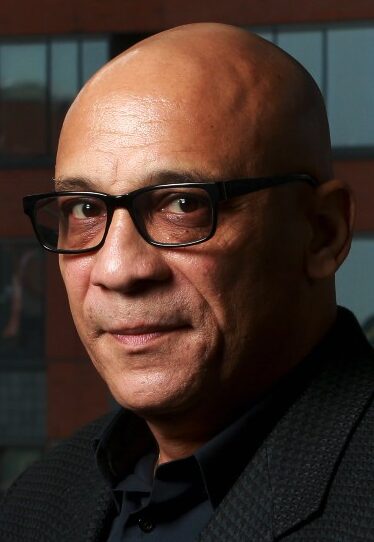 George E. Jordan (pictured) has returned to the newsroom after 12 years away. Jordan is a veteran of the Star-Ledger in Newark, N.J., and of Newsday. “George is doing a once-weekly business column for us. It’s freelance, Editor Kevin Whitmer messaged Journal-isms on Tuesday. “Personally, I’m thrilled to have him back with us.” Jordan said he had been “writing for life science companies, maritime engineers and, of all things, coaching college and international master’s track and field (sprints and jumps). Pandemic forced the old man off the track and back to pounding the keyboard.”
George E. Jordan (pictured) has returned to the newsroom after 12 years away. Jordan is a veteran of the Star-Ledger in Newark, N.J., and of Newsday. “George is doing a once-weekly business column for us. It’s freelance, Editor Kevin Whitmer messaged Journal-isms on Tuesday. “Personally, I’m thrilled to have him back with us.” Jordan said he had been “writing for life science companies, maritime engineers and, of all things, coaching college and international master’s track and field (sprints and jumps). Pandemic forced the old man off the track and back to pounding the keyboard.”
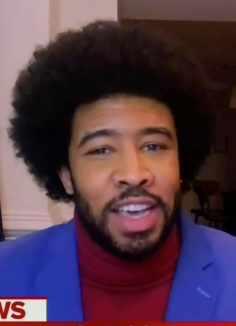 “Eugene Daniels (pictured), the co-author of Politico’s daily newsletter Playbook, is joining MSNBC as a contributor,” Ted Johnson reported March 17 for Deadline.
“Eugene Daniels (pictured), the co-author of Politico’s daily newsletter Playbook, is joining MSNBC as a contributor,” Ted Johnson reported March 17 for Deadline.
 Irving Washington (pictured), director/CEO of the Online News Association, has been named vice chair of the American Journalism Project, which is “dedicated to rebuilding local news as a public good and creating sustainable models to preserve its future,” Kymberlee Norsworthy wrote Monday for the project. “In October, Washington led the formation of Vision25: Building Racial Equity in Newsrooms, an initiative that seeks to build inclusive journalistic institutions where newsrooms are actively anti-racist and collaborative. Washington has led diversity programming and fundraising initiatives for journalists, media professionals, and students worldwide.” Joe Natoli, former Philadelphia Inquirer and Philadelphia Daily News chairman and publisher, is the new board chair.
Irving Washington (pictured), director/CEO of the Online News Association, has been named vice chair of the American Journalism Project, which is “dedicated to rebuilding local news as a public good and creating sustainable models to preserve its future,” Kymberlee Norsworthy wrote Monday for the project. “In October, Washington led the formation of Vision25: Building Racial Equity in Newsrooms, an initiative that seeks to build inclusive journalistic institutions where newsrooms are actively anti-racist and collaborative. Washington has led diversity programming and fundraising initiatives for journalists, media professionals, and students worldwide.” Joe Natoli, former Philadelphia Inquirer and Philadelphia Daily News chairman and publisher, is the new board chair.
- As a child, Abdalle Ahmed Mumin wanted to change the world by being the voice of the weak and vulnerable,” Collins Omulo wrote Thursday for the Daily Nation in Kenya. “The desire to see a better Somalia drove him to journalism. However, he had no idea this passion would lead to untold suffering in his life. Rather than become a man of the people, Mr Mumin soon became a wanted man by the terror group, al-Shabaab.” Omulo also wrote, “Mr Mumin’s story is not an isolated case. This is what most African journalists go through in the line of duty as they strive to hold their governments to account. And what better way to capture the horrors that journalists go through than publish a 137-page book, Hounded: African Journalists in Exile? . . .” The book is edited by veteran Kenyan journalist Joseph Odindo.
- In Argentina, the Association of Argentine Journalistic Entities (ADEPA) reports that protesters attacked the newspaper Río Negro Tuesday. “The aggressors forcibly entered the central building of the media outlet, and once inside, they destroyed things, painted the walls and furniture, and threatened and beat the receptionist and a photographer. The newspaper’s building was completely destroyed, with graffiti and posters in a clear intimidating message towards the media outlet and its workers. In addition, journalist Luis Leiva was threatened with death.”
- A new digital magazine Impronta (Imprint), founded and directed by LGBT journalists from Central America and launched on March 7, wants to tell readers what it is like to be LGBT in countries like Belize, Costa Rica, El Salvador, Guatemala, Honduras, Nicaragua and Panama, Marina Estarque reported March 17 for LatAm Journalism Review.
 “Colombian journalist Jineth Bedoya Lima’s (pictured) two-decade-long quest to bring her attackers to justice faced yet another hurdle earlier this month, after her country’s representatives withdrew from the Inter-American Court of Human Rights hearing on the case,” The Indian publication The Wire reported. “Bedoya, 46, was abducted, tortured and raped on May 25, 2000 from outside a prison, where she was to interview a member of a far-right paramilitary group. She had been investigating arms trafficking by members of the paramilitary group and state officials. Her attackers told Bedoya that the violence inflicted on her was meant to be a message to the Colombian press.”
“Colombian journalist Jineth Bedoya Lima’s (pictured) two-decade-long quest to bring her attackers to justice faced yet another hurdle earlier this month, after her country’s representatives withdrew from the Inter-American Court of Human Rights hearing on the case,” The Indian publication The Wire reported. “Bedoya, 46, was abducted, tortured and raped on May 25, 2000 from outside a prison, where she was to interview a member of a far-right paramilitary group. She had been investigating arms trafficking by members of the paramilitary group and state officials. Her attackers told Bedoya that the violence inflicted on her was meant to be a message to the Colombian press.”
To subscribe at no cost, please send an email to journal-isms+subscribe@groups.io and say who you are.
Facebook users: “Like” “Richard Prince’s Journal-isms” on Facebook.
Follow Richard Prince on Twitter @princeeditor
Richard Prince’s Journal-isms originates from Washington. It began in print before most of us knew what the internet was, and it would like to be referred to as a “column.” Any views expressed in the column are those of the person or organization quoted and not those of any other entity. Send tips, comments and concerns to Richard Prince at journal-isms+owner@
View previous columns (after Feb. 13, 2016).
View previous columns (before Feb. 13, 2016)
- Diversity’s Greatest Hits, 2018 (Jan. 4, 2019)
- Book Notes: Is Taking a Knee Really All That? (Dec. 20, 2018)
- Book Notes: Challenging ’45’ and Proudly Telling the Story (Dec. 18, 2018)
- Book Notes: Get Down With the Legends! (Dec. 11, 2018)
- Journalist Richard Prince w/Joe Madison (Sirius XM, April 18, 2018) (podcast)
- Richard Prince (journalist) (Wikipedia entry)
- February 2018 Podcast: Richard “Dick” Prince on the need for newsroom diversity (Gabriel Greschler, Student Press Law Center, Feb. 26, 2018)
- Diversity’s Greatest Hits, 2017 — Where Will They Take Us in the Year Ahead?
- Book Notes: Best Sellers, Uncovered Treasures, Overlooked History (Dec. 19, 2017)
- An advocate for diversity in the media is still pressing for representation, (Courtland Milloy, Washington Post, Nov. 28, 2017)
- Morgan Global Journalism Review: Journal-isms Journeys On (Aug. 31, 2017)
- Diversity’s Greatest Hits, 2016
- Book Notes: 16 Writers Dish About ‘Chelle,’ the First Lady
- Book Notes: From Coretta to Barack, and in Search of the Godfather
- Journal-isms’ Richard Prince Wants Your Ideas (FishbowlDC, Feb. 26, 2016)
- “JOURNAL-ISMS” IS LATEST TO BEAR BRUNT OF INDUSTRY’S ECONOMIC WOES (Feb. 19, 2016)
- Richard Prince with Charlayne Hunter-Gault,“PBS NewsHour,” “What stagnant diversity means for America’s newsrooms” (Dec. 15, 2015)
- Book Notes: Journalists Follow Their Passions
- Book Notes: Journalists Who Rocked Their World
- Book Notes: Hands Up! Read This!
- Book Notes: New Cosby Bio Looks Like a Best-Seller
- Journo-diversity advocate turns attention to Ezra Klein project (Erik Wemple, Washington Post, March 5, 2014)

